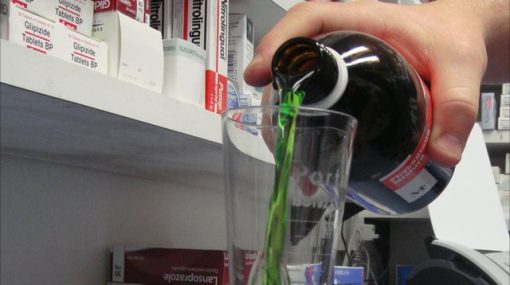Why You Shouldn’t Be Scared by Methadone Addiction Statistics
Opiate drugs such as heroin and morphine are highly addictive and can have a serious impact on your health. One of the top treatments for opiate addiction is methadone — a synthetic opioid drug similar to morphine that helps reduce withdrawal symptoms.
While this medication has been proven effective at treating opiate addiction, methadone addiction statistics can influence some addicts to seek other less effective treatments for their addiction.
Though methadone is an opioid itself, the drug has been used to treat opiate addiction for decades, and can help addicts stop their use of dangerous, addictive drugs. If you or someone you know is struggling with opiate addiction, call our helpline at 800-994-1867Who Answers? to receive more information about methadone treatment. Our helpline is available 24/7 to offer guidance and resources about addiction.
Do you want to overcome dependency on heroin, morphine, or another opiate? If so, continue reading to find out why you shouldn’t be scared by methadone addiction statistics, and how methadone maintenance treatment (MMT) can help you along the path to recovery.
MMT Relieves Withdrawal Symptoms

Methadone helps you live a normal life.
Due to the highly addictive nature of opiates, many addicts tend to resume drug use after completing other forms of treatment. But in a manner similar to opiates, methadone bonds to the same chemical receptors in the brain, but without producing the same euphoric high as opiates — resulting in lessened withdrawal symptoms. Therefore, addicts can go on to perform normal everyday activities without experiencing unwanted symptoms associated with stopping opiate use.
Methadone Doses Are Controlled By Your Doctor
At the time you seek treatment for opiate addiction, your doctor will perform an examination and determine the proper methadone dose based on factors that may include your age, current health condition, opiate tolerance level, and the length of time you abused opiates.
Finding the right dosage level is key to minimizing withdrawal symptoms and the risk for sedation. As you progress through recovery and treatment, your doctor will safely modify your methadone dose accordingly until you’re no longer taking the medication. This process can take months or years, depending on the individual.
MMT Programs Help You Overcome Addictive Behaviors
Opiate addiction and drug abuse in general can lead to destructive thinking and negative behavioral patterns that continue to fuel addiction. However, many methadone centers and MMT programs require addicts to participate in additional psychosocial treatments effective at helping you overcome negative thinking and behaviors. These treatments may include individual or group therapy, drug education, and counseling.
Methadone Treatment Involves Tapering
Since recovering opiate addicts can become addicted to methadone during treatment, patients will go through a tapering phase before stopping methadone treatment completely. Tapering is when your doctor gradually reduces your dosage level over time to minimize withdrawal symptoms, and to allow your brain to restore its normal chemical balance. Stopping methadone abruptly can trigger intense withdrawal symptoms that could affect your outcome for recovery.
MMT Helps You Live a Normal Life
Over 100,000 Americans currently use methadone to treat opiate addiction. Studies show that these individuals benefit from more fulfilling, normal lives compared to individuals who rely on other treatments to recover from opiate addiction.
Patients who take methadone are often less depressed, less likely to commit crimes, less likely to get HIV or hepatitis, and more likely to maintain careers and healthy family relationships. This is because methadone helps addicts avoid the highs and lows associated with opiate abuse, as well as criminal behavior associated with obtaining illicit drugs.
Methadone Starts Working Immediately
After methadone is introduced to your system, your cravings for other opiates will subside, along with any physical withdrawal symptoms you normally experience after stopping illicit drug use. This means you can focus less on thinking about drugs, and focus more on recovering and becoming healthier. Most recovering addicts notice immediate improvements in their mental, emotional, and physical well-beings shortly after beginning methadone.
If you or someone you know is addicted to opiates, don’t let methadone addiction statistics scare you away from getting the treatment you need to overcome your addiction. Methadone centers and MMT programs are designed to help you conquer opiate addiction in the best way possible without putting your health at risk.
Call our helpline at 800-994-1867Who Answers? to learn more about methadone, and about available treatments that can put you on the path to sobriety. Your confidentiality and privacy is guaranteed.
